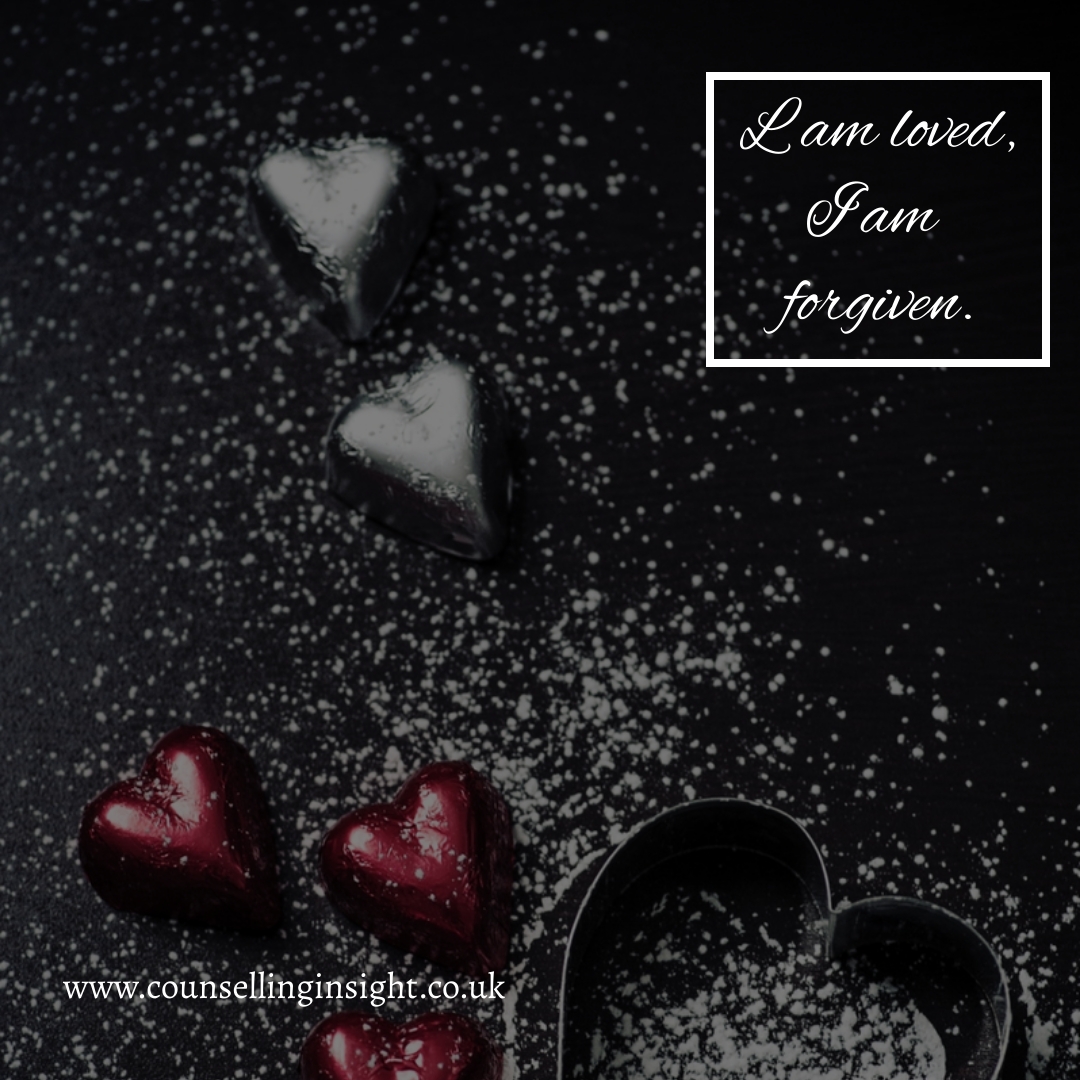5 Self forgiveness techniques
“Forgiveness is simply about understanding that every one of us is both inherently good and inherently flawed.”
Desmond Tutu
The other week I was attracted by a vibrant green jumper proudly advertising self care.That is, until I noticed the small print under its TEAM SELF CARE print:
- sleep
- eat
- drink water
Personally, I see that as a short list of basic needs, and definitely not self care.So I spent some time working out what self care means for me.
Forgiveness is self care as it releases us from resentment, anger and hostility.We tend to find it difficult to forgive others and even more so to forgive ourselves.Often our inner critic shows up and we can be really hard on ourselves.We hold onto guilt and shame which hurts us and those around us.
Self forgiveness is about showing ourselves kindness, empathy, and compassion; through the process of self forgiveness we can make a distinction between ourselves and our mistake.
Here are 5 Self-forgiveness techniques that may be helpful in our process:
1.Accept
Accept that what has happened has happened and it can not be changed.As much a possible, do try to accept this responsibility. It is likely that you will experience difficult feelings as a result, so do try and be kind to yourself.
2.Challenge unhelpful thoughts
Notice thoughts and feelings and try to challenge perfectionist/over generalising/ filtering/catastrophizing thinking.Is that true?Is it helpful?Will it matter in x weeks time? (see our Challenging unhelpful thoughts worksheet for more info).
3.Journal
Writing things down freely can bring emotional release and clarity. Free flow journalling is allowing yourself to be open, without fear of judgement, adding as many details as you can. Being able to look back and read through your experience can help you understand yourself better and allows for self compassion.
4.Use self affirmation
An affirmation is a statement that you repeat to declare to yourself your intention to make the positive affirmation statement true.Each time you use it, you are reinforcing a positive way of moving forward.Here are some examples, though it can be helpful to spend some time thinking of one or two that feel closer to your heart.
- I forgive myself so that I can forgive others.
- Punishing myself forever is unhelpful to me and others.
- I accept that I did the best that I could at the time. Now that I know better, I will do better.
- I am loved, I am forgiven.
5.Recommit
Try and see what you might be able to learn from the experience-what would you do differently next time?
Write down a list of your values and reflect upon how they may be underpinning future behaviour.What might be helpful to learn from this that you can take forwards?
Self forgiveness can be a slow process.There may be times when you feel like you got there, only to feel right back at the beginning of the process in moments of great stress-take it easy, you are doing your bestIf you need a helping hand, reach out to see how compassion-focused therapy can be helpful.
And most of all-give yourself a break.You are only human!
“Forgiveness is simply about understanding that every one of us is both inherently good and inherently flawed.”
Desmond Tutu

